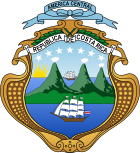
The politics of Costa Rica take place in a framework of a presidential, representative democratic republic, with a multi-party system. Executive power is exercised by the president and their cabinet, and the President of Costa Rica is both the head of state and head of government. Legislative power is vested in the Legislative Assembly. The president and 57 Legislative Assembly deputies are elected for four-year terms. The judiciary operates independently from the executive and the legislature, but is involved in the political process. Costa Rica has a strong system of constitutional checks and balances. Voting is compulsory, but this is not enforced.

The Libertarian Movement Party is a political party based on libertarian conservatism in Costa Rica. It was founded in May 1994. After an important protagonism during early 2000s with its perennial nominee Otto Guevara among the main candidates and reaching third place in 2006 and 2010, it was affected by several corruption scandals and lack of funds, the party gradually suffered a debacle in 2014 ending in fourth on the presidential ticket, and fifth in Parliament. Later losing all its mayors in the mid-term local election of 2016, to finally having bad results in 2018 with Guevara's candidacy reaching only 1% of support and losing all seats in Congress.

The National Liberation Party, nicknamed the verdiblancos, is a political party in Costa Rica. The party is a member of the Socialist International. Social-democratic by statute, the party has a few internal factions, including liberals, Third Way supporters, centrists, and social conservatives.

The Citizens' Action Party is a political party in Costa Rica.

The Social Christian Unity Party is a centre-right political party in Costa Rica.
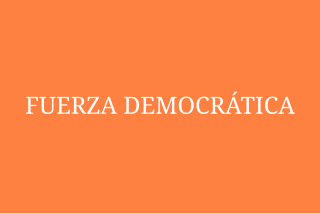
Democratic Force nicknamed “El Naranjazo” was a political party in Costa Rica.
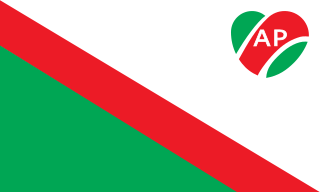
Patriotic Alliance is a political party in Costa Rica.

General elections were held in Costa Rica on 5 February 2006. In the presidential election, Óscar Arias of the National Liberation Party, a former president and Nobel Peace Laureate, was victorious over Ottón Solís of the Citizens' Action Party and twelve other minor-party candidates. Although Arias was expected to win by a wide margin, the actual polling reports were unexpectedly close. However, early results showed the contest to be closer than it actually was. The preliminary official report, after 88.45% of the vote counted, showed the result for President of the Republic almost tied between Arias with 40.51% of the vote and Ottón Solís with 40.29%. Given the small difference of only 3250 votes, the Superior Electoral Tribunal announced that a manual count of all the votes would start immediately and no official winner would be announced until that process was completed, approximately two weeks after the election.
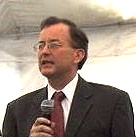
Ottón Solís Fallas is a Costa Rican politician. He graduated with a Bachelor of Economics from the University of Costa Rica in 1976 and gained a master's degree in economics from the University of Manchester in 1978. He is currently serving his second term as congressman, was a founding member of the Citizens' Action Party, and ran as its three-time presidential candidate. As an academic, he has taught at several universities in the United States and Costa Rica.
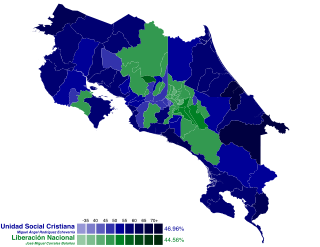
General elections were held in Costa Rica on 1 February 1998. Miguel Ángel Rodríguez of the Social Christian Unity Party won the presidential election, whilst his party also won the parliamentary election. Voter turnout was 70%, the lowest since the 1950s.

General elections were held in Costa Rica on 3 February 2002. For the first time in the country's history, no candidate in the presidential election passed the 40% threshold. This meant a second round of voting had to be held on 7 April which saw Abel Pacheco of the Social Christian Unity Party defeat the National Liberation Party's Rolando Araya Monge.
Events in the year 2014 in Costa Rica.

General elections were held in Costa Rica on Sunday, 2 February 2014 to elect a new president, two vice presidents, and 57 Legislative Assembly lawmakers. In accordance with Article 132 of the constitution, incumbent President Laura Chinchilla Miranda was ineligible to run for a second consecutive term.

Luis Guillermo Solís Rivera is a Costa Rican politician and educator who was the 47th President of Costa Rica from 2014 to 2018. He is a member of the Citizens' Action Party (PAC).

Juan Carlos Mendoza García is a Costa Rican politician and the country's current Ambassador to the United Nations. He was a deputy with the Citizens' Action Party during the 2010 to 2014 and served as President of the Legislative Assembly from 2011 to 2012.

A primary election was held for the first time among the members of Costa Rica’s Citizens’ Action Party (PAC), known as the Citizens' National Convention for the selection of the party's candidate in the 2010 general election. This was a closed primary, as potential electors were required to register before the election up till April 30, 2009.

A primary election was held among the members of Costa Rica's then ruling National Liberation Party (PLN) on June 7, 2009 in order to choose the PLN's nominee for presidency in the 2010 general election. The two main candidates for the nomination were then vice-president Laura Chinchilla and San José Mayor Johnny Araya. Former security minister Fernando Berrocal also ran a basically testimonial candidacy. PLN's main rival party, PAC, ran its own convention a month before.

General elections were held in Costa Rica in 2018 to elect both the President and Legislative Assembly. The first round of the presidential election was held on 4 February 2018, with the two highest-ranked candidates being Christian singer and Congressman Fabricio Alvarado Muñoz from the conservative National Restoration Party and writer and former Minister Carlos Alvarado Quesada from the progressive Citizens' Action Party, gaining 24% and 21% of the votes respectively. As no candidate received more than 40% of the first round vote, a second round run-off election was held on 1 April 2018 and was won by Carlos Alvarado Quesada, with a landslide victory of 60.6% of the vote.
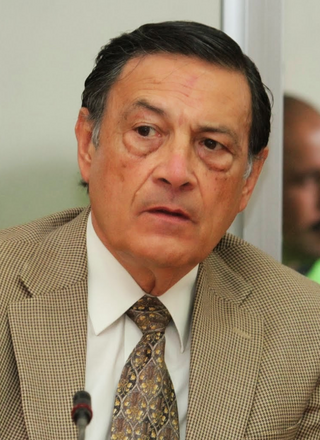
Municipal elections were held in Costa Rica on Sunday, February 2, 2020, to elect all municipal offices in the country: mayors, aldermen, syndics, district councilors and the intendants of eight special autonomous districts, together with their respective alternates in all cases. These will be the fifth direct municipal elections since the amendment to the 1998 Municipal Code and the second to be held mid-term since the 2009 reform.

General elections were held in Costa Rica on 6 February 2022, to elect the president, two vice-presidents, and all 57 deputies of the Legislative Assembly. As none of the presidential nominees obtained at least 40% of the votes, a runoff was held on 3 April 2022, between the top two candidates, José María Figueres and Rodrigo Chaves Robles.

